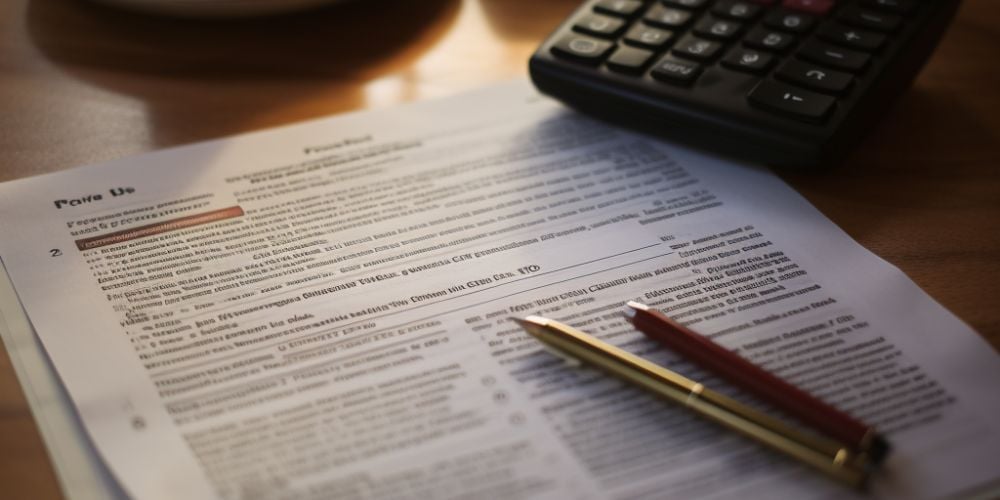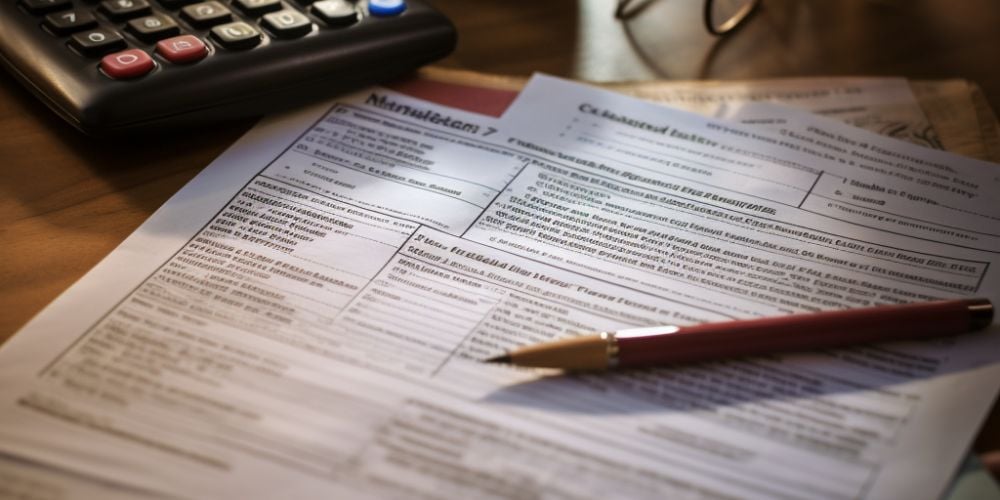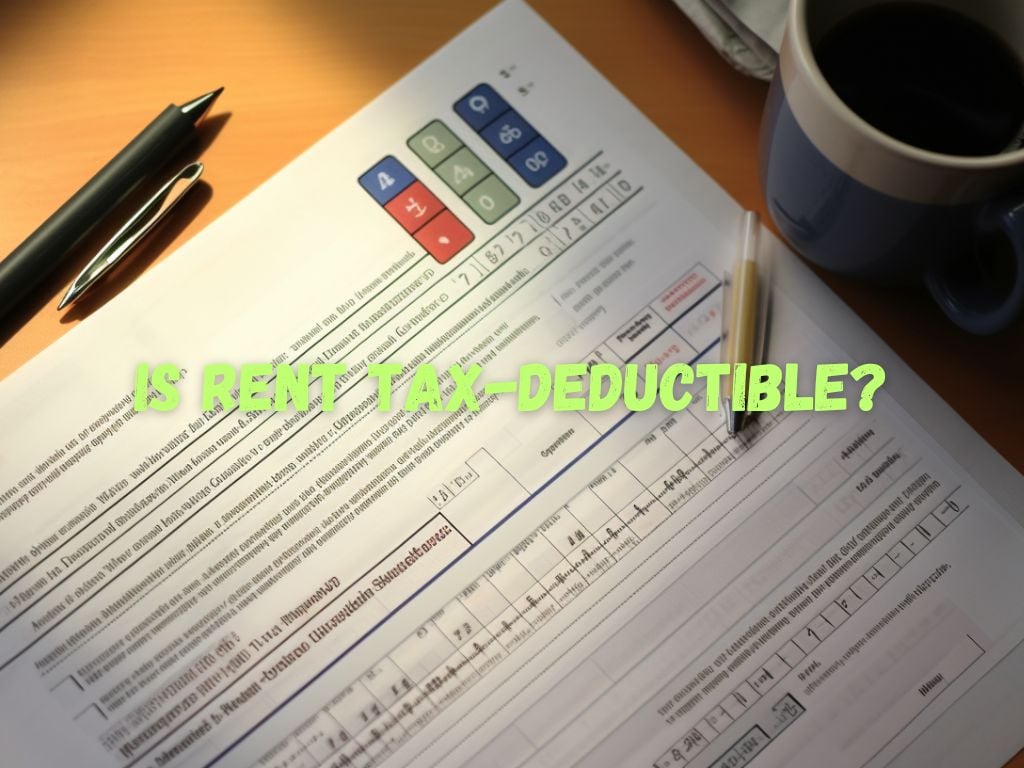Are you a renter wondering if you can get any tax benefits from renting your apartment? We have great news for you!
In this article, we will delve into the world of tax deductions and explore whether you can write off your apartment on your taxes.
So, is rent tax-deductible?
I feel it’s better to have a proper understanding on the tax benefits available to renters is essential as it could potentially save you a significant amount of money. So let’s jump right into it!
What Is a Tax Deduction?
Before we dive into the specifics of deducting your apartment rent, let’s briefly understand what a tax deduction is.
A tax deduction is a specific expense that reduces your taxable income, thereby lowering the amount of income tax you owe. It essentially reduces your overall tax liability.
Deductions are categorized into two types: standard deductions and itemized deductions.
While standard deductions are predetermined amounts set by the government based on your filing status, itemized deductions allow you to claim various qualified expenses, such as mortgage interest, medical expenses, and state and local taxes.
Is Rent Tax-deductible? Can You Write Off Your Apartment on Your Taxes?
Now that we understand the concept of tax deductions, let’s address the burning question: Can you write off renting your apartment on your taxes?
Unfortunately, the answer is not a straightforward yes or no. The Internal Revenue Service (IRS) determines tax deductions based on federal tax law, and the rules regarding rental expenses can be quite complex.
Generally, most taxpayers cannot deduct the full amount of their monthly rental payments. However, there are some specific cases where apartment rent can be written off on taxes.
To qualify for a tax deduction when renting your apartment, you need to fall under specific criteria set by the IRS.
One such criterion is operating a business from your rented apartment. If you use a portion of your apartment exclusively for conducting business, you may be able to deduct the related expenses.
The IRS criteria for qualifying as a home office are relatively stringent, so it’s important to review them carefully to ensure you meet all requirements.

What Expenses Can Be Deducted?
Now that we know you might be able to write off your apartment rent in certain circumstances, let’s explore the types of expenses that can be deducted.
While you cannot deduct your entire rent payment, there are specific expenses related to your apartment that may qualify.
Home Office Expenses
If you meet the IRS criteria for a home office deduction, you can deduct a portion of your rent.
To qualify, your home office must be used exclusively for conducting business, and it must be the primary place where you meet clients or perform business activities.
The space can be a separate room or a designated area within your apartment. Keep in mind that the size of your home office in relation to your overall apartment will determine the percentage of rent you can deduct.
Utilities
If you qualify for a home office deduction, you can also deduct a portion of your utilities. This includes expenses for electricity, water, internet, and any other services that are necessary for your work.
Again, the percentage you can deduct will depend on the size of your home office in relation to your apartment.
Repairs and Maintenance
Expenses related to repairs and maintenance in your rented apartment may also be deductible. This can include costs for fixing a leaky faucet, repairing a broken window, repainting walls, or general upkeep.
However, improvements that increase the value of the property are not eligible for deduction.
Insurance
If you are required to have renter’s insurance, you can deduct the premiums you pay for it. This deduction helps mitigate the costs of protecting your personal belongings and liability within your rented apartment.
Professional Services
If you seek professional advice or assistance related to your rental property, such as legal or accounting fees, those expenses may be deductible.
For example, if you consult with an attorney to review your lease agreement or an accountant to help with your tax returns, you can include these costs as deductions.
Recordkeeping Requirements
To ensure you can claim these deductions successfully, it’s essential to keep accurate records of your expenses. Here are some key points to remember:
Save Receipts and Invoices
Keep all receipts, invoices, and bills that show the expenses you incur as a renter. This includes rent payments, utilities, repairs, insurance premiums, and any other costs associated with your apartment.
Maintain Bank Statements
Keep copies of your bank statements that show the transactions and payments related to your rental expenses. This will help validate the amounts you claim as deductions.
Organize Documentation
It’s important to have a system in place to organize your records. Categorize your expenses accordingly and keep them in a safe place. This makes it easier to retrieve the necessary documentation during tax-filing season.
Keep Digital Copies
Consider making digital copies of your receipts and invoices. Storing them electronically can provide an extra layer of security in case any physical copies get lost or damaged.
Consult a Tax Professional
If you have any uncertainty about the records you need to keep or the documents that qualify as valid proof, consult with a tax professional. They can guide you through the recordkeeping requirements specific to your situation.

Other Tax Breaks for Renters
In addition to potential deductions mentioned above, there are other tax breaks available to renters. These tax breaks can help reduce the burden of rental expenses. Let’s explore a few of them:
Earned Income Tax Credit (EITC)
The EITC is a refundable tax credit available to low-to-moderate-income working individuals and families. Depending on your income level and filing status, you may qualify for this credit. It can significantly reduce your overall tax liability and may even result in a tax refund.
State and Local Tax Benefits
Many states and local governments offer additional tax benefits to renters. These benefits can vary widely based on where you live.
Some states may provide property tax breaks or credits specifically targeted towards renters. Research the tax laws in your state to see if any additional tax breaks apply to you.
Renters’ Rebate Programs
Some states offer renter rebate programs designed to assist low-income renters. These programs provide financial assistance in the form of a refund or credit towards rent payments. Check with your state’s housing authority or local government to see if you qualify for such programs.
FAQs:
Can I deduct my entire rent payment on my taxes?
No, in most cases, you cannot deduct your entire rent payment. However, certain expenses related to your rented apartment may be eligible for deduction if you meet the necessary criteria set by the IRS.
Can I deduct my apartment rent if I work from home?
If you meet the IRS criteria for a home office deduction, you may be able to deduct a portion of your rent. The space must be used exclusively for business purposes and serve as the primary place of your business activities.
What should I do if I don’t have receipts for some of my expenses?
While having receipts is ideal when claiming deductions, other types of documentation, such as credit card statements or bank records, can serve as proof of your costs.
If you have difficulty obtaining specific receipts, consult a tax professional for guidance on alternative methods of documentation.
Conclusion
While renting your apartment may limit the number of tax deductions available to you, there are still opportunities to save money.
By understanding the criteria set by the IRS and keeping accurate records, you can potentially write off certain expenses associated with your apartment. Additionally, exploring other tax breaks for renters, such as the EITC, can further enhance your refund.
As always, consult with a tax professional to ensure you fully understand the tax laws and regulations applicable to your specific situation. Start exploring these potential deductions and see how you can maximize your tax savings as a renter!


 Tags:
Tags:










